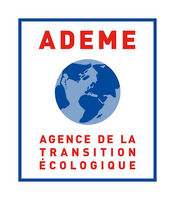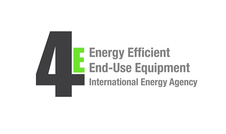Search eceee proceedings
Deep decarbonization of industry
Panel: 9. Deep decarbonisation of industry
Authors:
Paul van den Oosterkamp, TNO, The Netherlands
Frank Wubbolts, TNO, The Netherlands
Remko Detz, TNO, The Netherlands
Abstract
The deep global decarbonization of our lives can only be realized through massive deployment of renewable electricity generation and robust value chains for circular carbon. As a consequence, a new paradigm will develop, which is linked to two key ingredients produced directly from the sun’s energy: renewable electricity and biomass. The electricity, the bio-energy and the bio-materials find their way to consumers through the intricate structures of industry.
Many useful materials consist of carbon-based molecules. These products are all to be produced from circular-carbon resources: biomass, recycled waste and captured CO2 from industrial processes or from the air. The processing of these carbon-based resources generally requires energy of high quality.
For the Netherlands it should be foreseen that a considerable share of its energy demand cannot be generated as electricity within its own territory and therefore has to be provided by import of electricity through grid connections and through activated’ CO2, water and nitrogen in the form of biomass, hydrogen, ammonia and methanol.
This paper looks in particular at the transformation of the petrochemical industry in connection with the phasing out of fossil carbon and re-programming of the current ‘thermo-catalytic cascade’ of fuels and materials co-production. We explore taking carbon-efficiency towards materials as a guiding principle for the transformation. Chemistry and catalysis is then used to drive carbon preferentially into products instead of emitted into the air and to assess if one could identify new and scalable value chains and conditions for them to emerge.
While e-fuels and batteries may eventually displace most fossil-based energy carriers, for most chemical products there are no alternatives imaginable for carbon-based chemicals & materials. Taking the current ‘cracker’ platform chemicals as a basis, this paper elaborates and discusses the technical options for chemical conversion and possible consequences when chain carbon-efficiency and energy-efficiency in the materials are prioritized over cost of transformation. In this way, existing value chains can adapt to the new boundary conditions by making modifications to current operations.
The paper will discuss the elements of this restructuring of the chemical industry and the challenges that have to be met to make a more energy efficient and low carbon industry, both technological and in terms of policies, together with their estimated impact.
We will illustrate the case for the Netherlands, a country with large clusters of refinery and petrochemical industry and sketch the corresponding roadmap that can be expected from the guiding principle of carbon-efficiency towards products.
Downloads
Download this presentation as pdf: 9-274-22_Oosterkamp_pres.pdf
Panels of
1. Dynamics of consumption: less is more?
2. Efficiency and beyond: innovative energy demand policies
3. Policy, finance and governance
4. Monitoring and evaluation for a wise, just and inclusive transition
5. Towards sustainable and resilient communities
6. Energy-efficient and low-carbon mobility for all
7. Policies and programmes for better buildings
8. Innovations in products, systems and building technologies



























